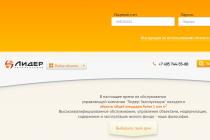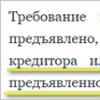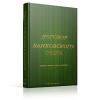The lesson to be learned from this chapter is that everyone experiences money problems, rich and poor alike. To get rich and increase your financial intelligence, there is only one way - solving money problems.
Representatives of the poor and middle class tend to avoid problems or pretend that they do not exist. But difficulties do not disappear because of this, and financial intelligence with this approach grows very slowly or does not develop at all.
The rich face money problems head on. They know that finding a solution will make them smarter and increase their financial IQ. Wealthy people are well aware that they have achieved their current position thanks to their financial knowledge, not money.
The problem with the poor and middle class is that they lack resources. The rich have too many of them. Both problems are very real. The only question is which one suits you more. If you want to solve problems associated with excess money, read on.
Five Types of Financial IQ
There are five main types of financial IQ:
Financial IQ No. 1, which measures ability to make money;
financial IQ No. 2, characterizing the ability to save money;
Financial IQ No. 3, which shows the level of budgeting ability;
Financial IQ #4, which measures leverage;
Financial IQ No. 5, which analyzes the ability to increase financial awareness.
What is the difference between financial intelligence and financial IQ
Almost everyone knows that a person with an intelligence quotient (IQ) of 130 is smarter than someone with an IQ of 95. The same can be said about financial IQ. However, even if in terms of the level of general development a person is a genius, then in terms of financial intelligence he may turn out to be the last ignoramus.
I am often asked the question: “What is the difference between financial intelligence and financial IQ?” I answer: “Financial intelligence is the part of our general intelligence that we use to solve financial problems, and financial IQ is a measure of its assessment. It's just a means of measurement. For example, if I make $100,000 and pay 20 percent in taxes, then my financial IQ is higher than someone who makes the same $100,000 but pays 50 percent in taxes.
In this example, a person who has $80,000 left after taxes has a higher level of financial intelligence than someone who only has $50,000 left. Financial intelligence is present in both, but the one who ultimately has more money has a higher financial IQ.
Measuring Financial Intelligence
1. Ability to make money (financial IQ No. 1). Most of us have enough intelligence to make money. The more you earn, the higher your financial IQ No. 1. In other words, a person whose annual income is a million dollars has a significantly higher financial IQ of this type than someone who earns 30 thousand in a year. And if both earn a million a year, but one pays less taxes than the other, then the financial IQ of the first is higher, since in this case he approaches the issue more comprehensively and uses financial IQ No. 2, which allows him to save what he has earned.
Everyone knows that a person can have a very high level of general intelligence, but, being a genius in a student audience, he is not capable of making money in the real world. For example, my poor dad was an outstanding teacher with an extremely high IQ, but his financial IQ was low. The father was a luminary in the field of education, but was nothing in business.
2. Ability to save money (financial IQ No. 2). I won't surprise you too much if I tell you that the whole world is trying to rid you of money. But not everyone who targets your money can be called scammers and thieves. One of the biggest financial predators is the tax system. The government takes your money for completely legal reasons.
Someone with a lower financial IQ #2 will pay more taxes. For example, let's take two people, one of whom pays 20 percent of taxes, and the second - 35 percent. Those who pay less have a significantly higher financial IQ.
3. Budgeting skills (Financial IQ #3). Budgeting requires a high level of financial intelligence. Many people in this respect become more like the poor than the rich. Sometimes people earn a lot of money, but cannot keep it because they do not know how to plan a budget. So, for example, a person who earns and spends $70 thousand a year has a lower financial IQ #3 compared to someone who earns $30 thousand but lives on $25 thousand and invests $5 thousand. The ability to maintain a decent lifestyle regardless of income level and still save something for investment indicates a high financial IQ. The budget should always be planned so that income exceeds expenses. We will consider this issue in more detail below.
Test to determine the level of Financial IQ (© Temchenko M.A. 2013)
1. My monthly income:
A) from 0 to 10,000 rubles = 0 points
B) from 10,000 to 20,000 rubles = 1 point
B) from 20,000 to 50,000 rubles = 2 points
D) from 50,000 to 100,000 rubles = 4 points
D) from 100,000 to 200,000 rubles = 8 points
E) from 200,000 to 400,000 rubles = 12 points
G) from 400,000 to 800,000 rubles = 17 points
H) from RUB 800,000 = 24 points
2. I work as an employee = 3 points
3. I have a leadership position = 4 points
4. I work for myself (part-time work, freelance) = 4 points
5. I have my own business:
A. 1-10 people = 6 points
B. with a number of people 11-50 = 8 points
V. with a number of people 51-100 = 12 points
D. with more than 100 people = 16 points
6. I have income from investments (deposits, etc.) = 2 points
7. I use social benefits (benefits, subsidies, deductions) = 2 points
8. My expenses are more than my income = 5 points
9. My expenses are approximately equal to my income = 0
10. I always have enough money for a vacation or a major purchase = 4 points
11. I put off:
A. about 5% of your income = 1 point
B. 10% of your income = 3 points
B. 20% of your income = 7 points
D. 30% of your income = 10 points
D. More than 30% = 16 points
12. I save money in a piggy bank = 0 points
13.The amount of my savings:
A. less than monthly income = 1 point
B. approximately 1-2 monthly income = 3 points
B.about 3-5 monthly income = 6 points
D. More than 6 monthly income = 12 points
14. I invest my savings:
A. to the bank or at 5-8% per year = 2 points
B. about 12% per annum = 4 points
B. about 20-30% per annum = 8 points
D. about 50% per annum = 16 points
D. about 100% per annum or more = 25 points
15. My passive income exceeds my total expenses = 25 points
16. I have a property that I rent out = 6$
17. I have consumer loans = - 4 points
18. I have active credit cards = - 4 points
19. I have private loans (at %) = - 8 points
20.I have loans/debts (without%) = - 1 point
21. I have a mortgage = - 4 points
22. I do charity work = 2 points
23. I keep strict financial records of income and expenses = 4 points
24. I have a budget for 1 month in advance = 2 points
25. I have a budget for 1 year = 5 points
26. I have a financial plan for 3-10 years ahead = 8 points
27. I have a list of financial goals, with prices and deadlines = 2 points
28. My plans and budgets take into account investments = 5 points
29. I consider money a very important topic in my life = 5 points
30. I read books on personal finance = 2 points
31. I go to free personal finance seminars = 4 points
32. I go to paid trainings on personal finance = 15 points
33. I played Cash Flow or Monopoly or the like. = 3 points
Test score: 0-40 points
FINANCIAL IQ - NORMAL, LOW
Money owns you more than you own money.
Finances are difficult to manage, or the financial side of life interests you little
Periodic and recurring financial problems are likely.
If you don't pay enough attention to money, it can play a cruel joke on you.
41-80 points
FINANCIAL IQ - AVERAGE
You are already starting to get comfortable with money tasks.
Money is soft to manage; you can influence income and expenses. You are interested in new financial perspectives and are ready to take advantage of them.
If you add a little knowledge and action, you can quickly move to the next financial level!
81-140 points
FINANCIAL IQ - HIGH
You confidently manage your money, know and use the Laws of Money for your benefit and your pocket. You have developed a specific financial strategy, and qualitative and quantitative financial growth is possible in the near future.
All you have to do is implement your financial plans in a disciplined manner and soon you will reach the level of financial independence and freedom!
141-200 points
FINANCIAL IQ IS VERY HIGH - YOU CAN BE CALLED RICH
Congratulations to you!
You have money for YOU, money works for you, brings you joy and pleasure,
As a rule, your income far exceeds your expenses, and all you have to do is wisely set up your investment portfolio so that your wealth grows and multiplies steadily!
The book reveals the five main types of financial intelligence that are needed to become richer, regardless of the state of the stock and real estate markets.
For a wide range of readers.
Preface
I met Robert Kiyosaki in 2004, and in 2006 we wrote a book together that became a bestseller. Today I realize even more clearly that everything Robert talks about and teaches is of utmost importance. Financial education is becoming an urgent need in our country, and Kiyosaki’s competence in these matters is undeniable.
Just look at the topics discussed in our book, Why We Want You to Be Rich, and then look at what has happened since then. Apparently, we still knew what we were talking about. In his new book, Robert goes even further, and I have every reason to believe that he will be as forward-thinking as he was in 2006. I would advise you to listen more closely to his advice.
Robert and I share the same concerns and have had similar paths in teaching and business. We both had rich dads who helped shape our character and achieve much in life. We are both entrepreneurs and invest in real estate. We have both achieved success through financial education. We understand its importance and take the issue of financial literacy very seriously. Robert wrote: “It is financial education that allows people to analyze financial information and turn it into knowledge. However, many lack the foundation necessary to change something in their lives.” And I completely agree with him.
People immediately notice in Robert a complete lack of any complacency. He has already reached great heights, but he still loves what he does. And this is another feature that unites us. You're in luck because he has a lot of good advice for you. As I wrote in Why We Want You to Be Rich, knowledge is of no use if you keep it to yourself. Robert confirms this idea in every book that comes from his pen, and you can only be glad that he is so willing to share his knowledge with you.
One of the first steps on the path to wealth is mastering the ability to take advantage of emerging opportunities. Right now you have such a chance. I advise you to read this book very carefully. It will lead you to financial freedom and great success. And don't forget to think bigger. We will meet you again in the winner's circle!
One of the greatest shortcomings of our education system is that it does not teach students any financial knowledge. Teachers, obviously, endow money with some kind of demonic properties and elevate it into a cult, believing that the root of all evil lies in the desire for financial well-being.
However, most of us are well aware that the love of money is not evil. Evil lies precisely in their absence. Evil is when you hate your job, when working by the sweat of your brow does not allow you to feed your family. Evil is when a person is deeply in debt. Evil is when you have to quarrel with your loved one over money. Evil is greed, committing crimes and immoral acts. But money in itself is not evil. Money is just money.
Your home is not an asset
Lack of financial education makes you do stupid things or fall for stupid people. For example, in 1997, when my book Rich Dad Poor Dad was first published, I wrote: “Your home is a liability, not an asset.” At that time, this statement caused a storm of protests. Both I and my book were subjected to severe criticism. Many self-proclaimed financial experts did not skimp on attacks in the media. Ten years later, in 2007, as the mortgage market collapsed and millions of people found themselves in free fall, with their real estate devalued and many losing their homes and some even filing for bankruptcy, they had a belated and painful epiphany : Their houses actually turned out to be a liability, not an asset.
Two people - one opinion
In 2006, my friend Donald Trump and I wrote a book, Why We Want You to Be Rich, about the impoverishment of the middle class and the reasons behind it. We argued that the source of all ills lies in global processes, government decisions and financial market trends. This book has also been criticized by "experts". However, in 2007, much of what we predicted came true.
Outdated advice
Today, many financial experts continue to recommend: “Work hard, save, eliminate debt, live within your means, and invest in diversified portfolios and mutual funds.” But the problem is that this is bad advice because it is hopelessly outdated. The rules for handling money changed already in 1971. Today there is a new capitalism, and recommendations to save money, eliminate debts and diversify investments are suitable only for the era of old capitalism. Anyone who continues to repeat the mantra of “work hard and save” will inevitably face financial problems in the era of new capitalism.
Awareness and education
I believe the lack of financial education in the school system is a disgrace. In today's world, learning how to handle money is absolutely necessary for the survival of every person, regardless of whether he is rich or poor, smart or not.
Almost everyone knows that we live in the information age, the problem of which is information overload. The equation below explains why financial education is so important:
Information + Education = Knowledge.
Without financial education, people are not able to analyze incoming information, turning it into useful knowledge. Therefore, they face money problems. Lacking financial knowledge, they do stupid things, such as buying houses, considering this step as an acquisition of assets, or saving money, not realizing that since 1971 it is no longer money, but just a means of payment. People don't realize the difference between good and bad debts. They fail to understand why the rich pay less in taxes when they have high incomes and why the world's richest investor, Warren Buffett, does not embrace diversification.
Lemming herd feeling
Without financial knowledge, people expect someone to tell them what to do. But most experts recommend working hard, saving money, eliminating debt, living within your means, and diversifying your investments. Like lemmings blindly following a leader, people are throwing themselves off cliffs into an ocean of financial uncertainty in the hope that they can swim to the other side.
The book won't tell you what to do. Its goal is to acquire financial knowledge that will allow you to analyze incoming information and find your way to achieving material well-being.
Overall, we can say that the book teaches you how to get rich by becoming smarter. Its goal is to increase your financial IQ.
Raise your financial IQ - Robert Kiyosaki (download)
(introductory fragment of the book)
At the moment, there are a huge number of finance-related specialties on the profession market. Of course, there are plenty of people too.
However, a situation is gradually developing where there are more people than jobs. In such a situation, only the strongest representatives of this profession work.
What does the strongest mean? In the case of specialties that are related to money circulation, strong means smart. And recently, the “mind” of a financier can be determined based on financial intelligence and financial IQ. Let's figure out what these two relatively new concepts mean, which many have not yet encountered.
Financial intelligence is the ratio of a person’s total intelligence to the amount he uses to solve specific financial problems. And financial IQ is a measure of financial intelligence. In order to find out the general part, you need to take an IQ test, which can be easily found on the Internet. Their number on the Internet is now very large, so these tests are mostly online, so you don’t have to register anywhere.
Well, now let's figure out how to calculate financial IQ. The first type is the ability to make money. Agree, this is what characterizes a good financier. It can be measured in two ways - according to a similar period in the past, or as an average for financiers of his level. If this or that indicator has increased, then you can add this or that number of points to your financial IQ.
Financial IQ of the second type is the ability to save what you already have, in this case money. This IQ is a little more complicated to calculate. It is necessary to take into account the amount of money for paying taxes, paying for utilities and when purchasing various goods or when making purchases from the service sector. Let’s say if you have 1000 rubles, and you managed to save 12 rubles on these items, and your colleague has 15, then his IQ is higher.
And the third IQ is the ability to properly budget. It is measured as the percentage of excess income over expenses in a person’s (or family’s) personal budget. This means that another main task of a financier is to correctly draw up a budget, both his own and that of the enterprise. At the same time, the task is not to go into the negative even under very bad external conditions.
All three of these points provide a rough, but fairly accurate assessment of your abilities as a financier. Also, this method is created just for you and allows you to discover your own problems so that you can fix them yourself.
Subscribe to our channel in Yandex.Zen
Raise your financial IQ Robert Kiyosaki
(No ratings yet)
 Title: Raise Your Financial IQ
Title: Raise Your Financial IQ
About the book Raise Your Financial IQ by Robert Kiyosaki
“Raise Your Financial IQ” is another bestseller from a successful businessman, writer, author of the books “Rich Dad Poor Dad” and “Cash Flow Quadrant” Robert Kiyosaki. This work is addressed to readers who want to improve their financial literacy. It explains that you need to study around the clock, properly distributing your free time.
Why should you listen to Robert Kiyosaki's advice? It's simple. In 1985, the writer created an international educational organization whose goal was to teach students from around the world the principles of investment and business. In addition, the author’s best books are imbued with a desire to help every person awaken the financial genius dormant within him. Among the writer's main achievements is changing the way of thinking of millions of people. To date, more than 25 works have come from Kiyosaki’s pen, published in a circulation of about 30 million copies.
The author, in simple and accessible language, tells readers how to avoid poverty and earn millions using the most minimal resources. Thus, the book “Raise Your Financial IQ” reveals the five main types of financial intelligence that are necessary to become richer, regardless of the state of the stock and real estate markets.
However, here you will not find detailed instructions to help you earn millions “here and now.” There are no formulas for the lazy in the book “Raise Your Financial IQ,” but thanks to it you can easily understand the basics of the financial world. The author explains how to handle money, distribute income and control expenses.
The main thing, from the point of view of Robert Kiyosaki, is not to stop learning. After all, as soon as an entrepreneur falls out of the flow of relevant information, he immediately goes “to feed” his competitors. Only through constant self-improvement in the financial sector can you ensure that you receive passive income and achieve success in other areas.
Many of the thoughts described on the pages of the book are supported by real stories. Moreover, the author of the book himself and his wife experienced these situations: together they had to overcome many difficulties, but they changed their outlook on life, increased financial literacy and were able not only to get rich, but also to improve their personal lives.
On our website about books, you can download the site for free without registration or read online the book “Raise Your Financial IQ” by Robert Kiyosaki in epub, fb2, txt, rtf, pdf formats for iPad, iPhone, Android and Kindle. The book will give you a lot of pleasant moments and real pleasure from reading. You can buy the full version from our partner. Also, here you will find the latest news from the literary world, learn the biography of your favorite authors. For beginning writers, there is a separate section with useful tips and tricks, interesting articles, thanks to which you yourself can try your hand at literary crafts.
Quotes from the book “Raise Your Financial IQ” by Robert Kiyosaki
To become richer, you must recognize the fact that problems never go away.














